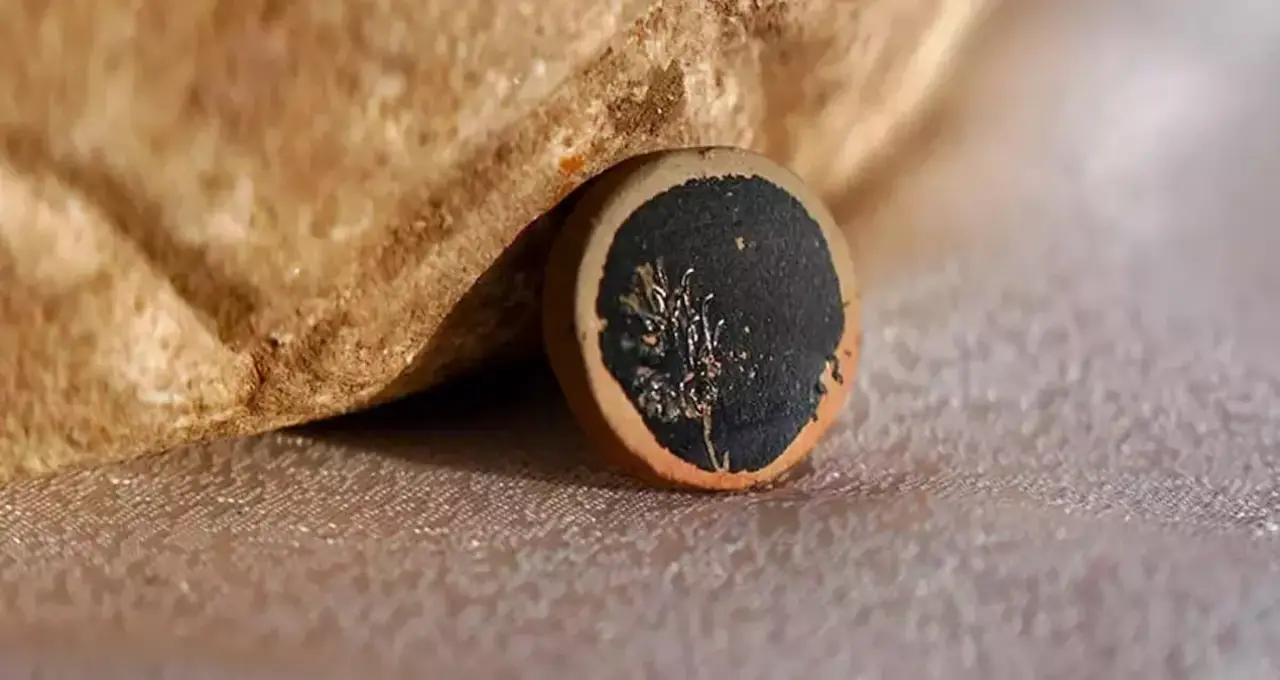The oldest theater ticket ever discovered, a 2,000-year-old terracotta artifact, has been unearthed during excavations at the Konuralp Ancient Theater, the only ancient theater in Turkey’s Western Black Sea region.
This remarkable find offers a rare glimpse into the cultural practices of the Early Roman Period, highlighting the historical significance of this site.
The coin-shaped ticket, measuring 2.3 centimeters in diameter and 0.3 centimeters thick, is adorned with a black-glazed rose motif on its front surface. The reverse side features the Roman numeral V (5), indicating seating arrangements in the theater. Such artifacts confirm that organized performances, complete with ticketed entry, were a feature of Roman life in this area.
Another significant find is a statuette of Aphrodite, with details similar to the Arles type. The figure is draped in a himation, with its folds gathered at the navel, demonstrating intricate craftsmanship and stylistic connections to ancient Greek and Roman artistry.
The most striking discovery is the symbolic Thyrsus, associated with Dionysus, the god of wine and revelry. This artifact, crafted from a fennel branch, features artistic details such as artichokes, pinecones, and ivy or vine motifs, all tied to its long stick. The Thyrsus served as a ceremonial staff in rituals and festivities honoring Dionysus, offering insights into the theater’s cultural and religious significance.
The Konuralp Museum, leading the excavations, continues to unearth artifacts that enrich the historical narrative of this region. These discoveries emphasize the theater’s role as a hub of entertainment and cultural activity during the Early Roman Period, underscoring the enduring legacy of ancient traditions.













